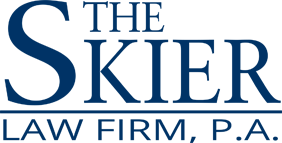While some will say that medical malpractice lawsuits are driving up the cost of health care in America, the fact remains that sprawling frauds account for losses in the billions. However, prosecuting these cases relies on law enforcement charging companies and their executives with crimes. For those who believe that medical malpractice lawsuits are to blame, protecting companies, hospitals, and doctors from damaging financial judgments is more important. Ultimately, it boils down to who you want to protect. Federal law enforcement officers want to protect Medicaid and Medicare from false or fraudulent claims. State legislators want to protect the local economy from false or fraudulent medical malpractice lawsuits. However, medical malpractice lawsuits rarely net anything close to a billion dollars whereas this one health care fraud scheme cost more than the sum of all medical malpractice lawsuits filed in the State of Florida during your average year.
The anatomy of a health care fraud scheme
How do you defraud Medicare, Medicaid, and private insurance companies of money? Well, how does a mechanic oversell you on repairs? Essentially, we’re seeing the same thing with doctors. They’re overselling customers on repairs, requiring expensive and unnecessary testing, using expensive pharmacies to create tailor-made meds, and charging for durable medical equipment that patients don’t need. In most cases, patients never see a bill for the services they provide and the medical industry never mentions their prices prior to providing services. While insurance adjusters and health care fraud officials may know how much something should cost, the patients themselves really don’t know that they’re being used as cash cows for criminals. Now, frauds related to telemedicine are becoming more rampant post-pandemic.
Patient brokering and bribery
While some of these frauds involve charging the patient for more services than they require or received, others involve patient brokering which can be much more complex. Health care companies routinely form networks to provide services, but actually paying bribes to one company so that another company gets money from testing or referrals is illegal. Why?
Well, it’s sort of like an antitrust violation and is based on a concept known as cartelism. Cartelism occurs when some companies form an ad hoc alliance to prevent other companies from competing in a certain location or market. It generally reduces market competition harming both the consumer and the economy.
In this case, the scheme mentioned above involved the brokering of patients from telemedicine companies to laboratories that would charge more for tests than other laboratories. This inflates the cost of healthcare for everyone and as such, is illegal. Nonetheless, what constitutes patient brokering as opposed to in-network referrals can get very blurry. The government is looking for signs that these companies are overcharging for their services or that the expensive options are not medically necessary for the patient.
Talk to a West Palm Beach Fraud Defense Attorney
Fraud charges are complex because it’s a matter of who did what and when, and it’s not always clear who knowingly committed illegal acts. The Skier Law Firm, P.A. understands that people can get mixed up with bad companies and end up on the wrong side of federal prosecution. Call our West Palm Beach criminal lawyers today to learn more about how our white-collar attorneys can help.

